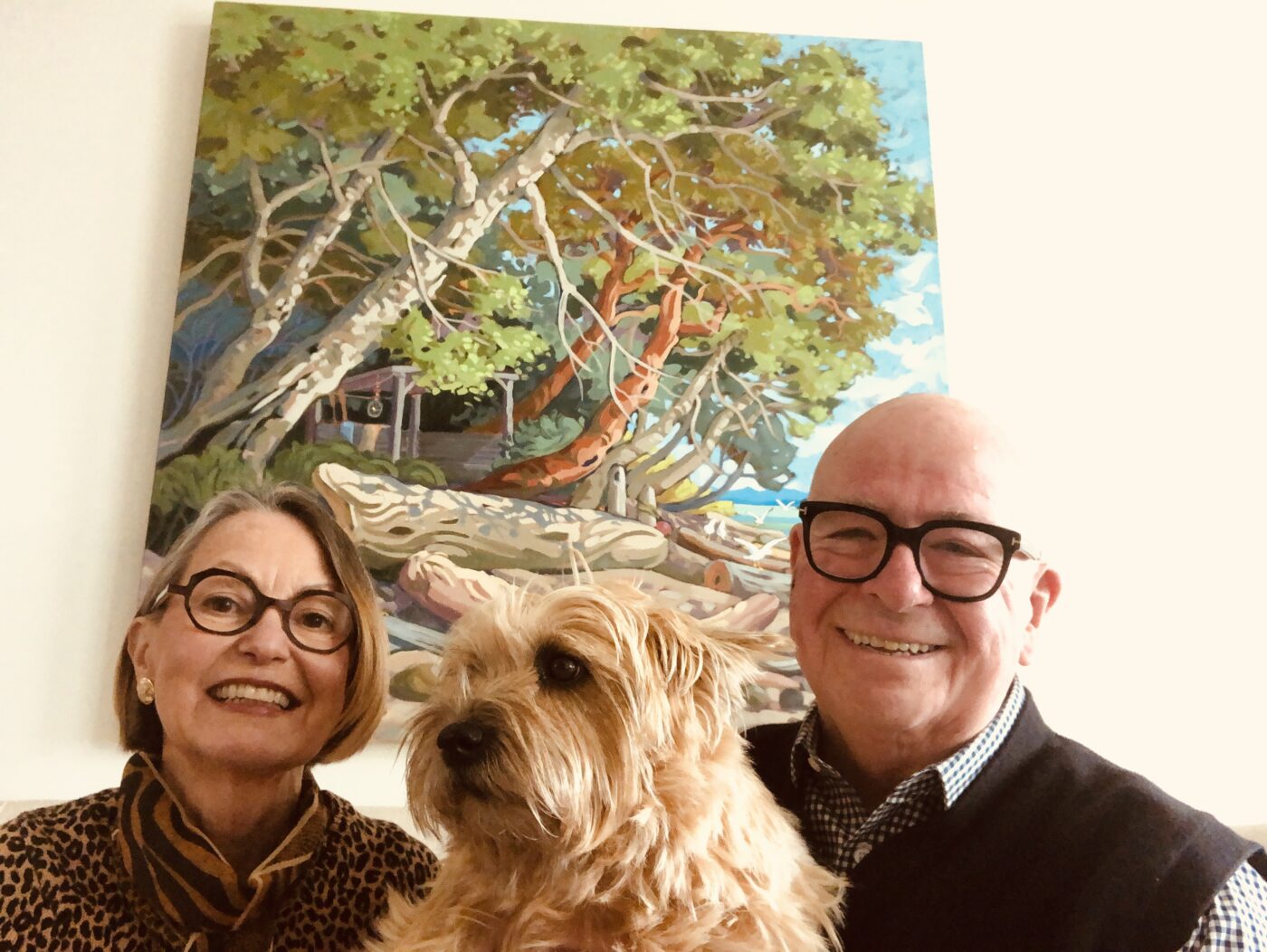Speaking up for Head and Neck Cancer Research
May 30, 2022
Jess and Ramona Ketchum are donating $100,000 to a new study, Personalized Approaches in the Treatment of Head and Neck Cancers (PATH) to fuel research into HPV-based cancers.

Jess Ketchum admits he’s a talker. He has a successful communications company to prove it. But you won’t hear him speaking about his cancer “journey.”
Not because he’s still recovering after radiation and chemotherapy to “put the boots to” a human papillomavirus (HPV)-based squamous cell carcinoma, which resulted in a tumour under his tongue and impacted the lymph nodes on both sides of his neck. He has plenty to say on the subject and, despite a raspier voice post-treatment, the capacity to say it.
And not because what he has to say isn’t significant — the need to fuel more research in head and neck cancers in B.C. is one of the most important messages he will ever communicate.
“I just don’t refer to it as a ‘journey.’ I prefer to think of my journeys as enjoyable,” he laughs. “I’m a project guy and so I turned this challenge into a project. My objective was clear — survival. I had to do research, just like you would for a business plan. I had to have a strategy and the tactics necessary to reach my objective. I had to put together my team.”
Thanks to Jess’ five years (three as chair) on the BC Cancer Foundation Board, he knew he had a dream team in his oncologists, BC Cancer – Vancouver’s Drs. Eric Tran, Janessa Laskin and Sarah Hamilton. His wife Ramona was the CEO of comfort and home care, his dog Sophie the VP of emotional support/personal trainer, and his wealth of friends quickly rallied to pick up the slack in the transportation department, and on many other fronts.
“I never had to drive once,” says Ramona. “They never failed. For seven weeks one took him to the clinic every morning and one brought him home at night,” — often with a White Spot milkshake when Jess’ radiation-ravaged throat could swallow little else.
“And it was a rare day,” Ramona adds, “that Jess didn’t come home raving about his wonderful friends, his doctors and his team of ‘angels,’ his nurses in the radiation support group.”
Jess’ team and his own research informed him that HPV is the most common sexually transmitted virus, which an estimated 75% of Canadians will contract. In most people, HPV goes away on its own, in others it can result in a variety of cancers, including cervical and head and neck.
And while a vaccine (given at 11-12 years old) is an amazing preventative breakthrough, virtually nothing is known about why the vast majority of unvaccinated adults escape the infection unscathed, while others develop cancer.
“I was shocked at the lack of information, globally, on basic questions regarding head and neck cancers and especially HPV-based cancers,” says Jess.
These unknowns (why the virus results in cancer in some and not in others, why some head and neck tumours grow, rather than recede, with radiation, and why some are more susceptible to recurrence) and the fact that 35% of those diagnosed will die from this disease, didn’t sit well with Jess.
“The primary goal of this project was for me to regain my health, to not only survive, but to be able to enjoy life again,” he says. Though still dealing with side effects such as aspiration (when food and drink enter the airway), Lymphedema (swelling where fluids build up after lymph nodes are removed), losing his sense of taste and smell (temporarily, he hopes) and around 80 pounds, Jess is on his way to achieving this.
Despite his improving health, Jess’ “project” is far from complete. And to help further it along, and answer some key questions around head and neck cancers, he’s putting his money where his mouth is — literally.
Jess and Ramona have generously donated $100,000 to help fuel a unique study, Personalized Approaches in the Treatment of Head and Neck Cancers (PATH), led by a team, including his oncologists, in partnership with Dr. Marco Marra at Canada’s Michael Smith Genome Sciences Centre (GSC) at BC Cancer.
The first-of-its-kind study will enable people in B.C. with head and neck squamous cell carcinoma to have their cancer genes sequenced at the time of their diagnosis, and again if their cancer reoccurs, to inform more effective options for treatment-resistant tumours and shed light on cancers caused by viruses.
“PATH isn’t likely to help me, but five years ago somebody donated to something that is helping me now,” says Jess of a clinical trial he participated in to test a new drug aimed at mitigating radiation side effects. “That’s the way research works, and you have to keep that going.”
One of only a few programs in the world that are currently studying connections between radiology and genomics, the research that comes out of PATH has the potential to set a global precedent in the study of head and neck cancers.
“Over the years, I’ve often said that if you have cancer, you don’t have to go anywhere else. I’ve proved myself right. I’m telling you now from personal experience — you’re going to get the best treatment right here in B.C.,” says Jess.
“In addition, my experience with the BC Cancer Foundation has also made me aware of the tremendous human and technological assets we have in B.C. to conduct world-leading research. British Columbians should be incredibly proud of not only the cancer treatment available to them here at home, but of the B.C. research that is saving lives around the world,” — and PATH is an incredible opportunity to support that work.
Join Jess and Ramona Ketchum in fuelling the groundbreaking research study, Personalized Approaches in the Treatment of Head and Neck Cancers (PATH) at BC Cancer.


